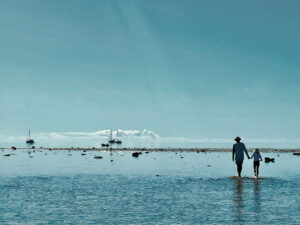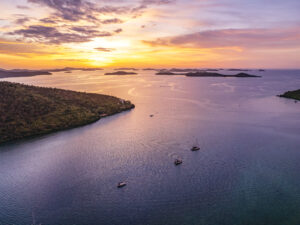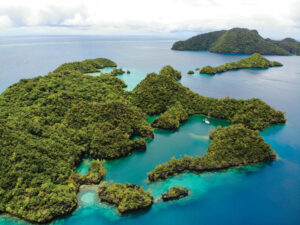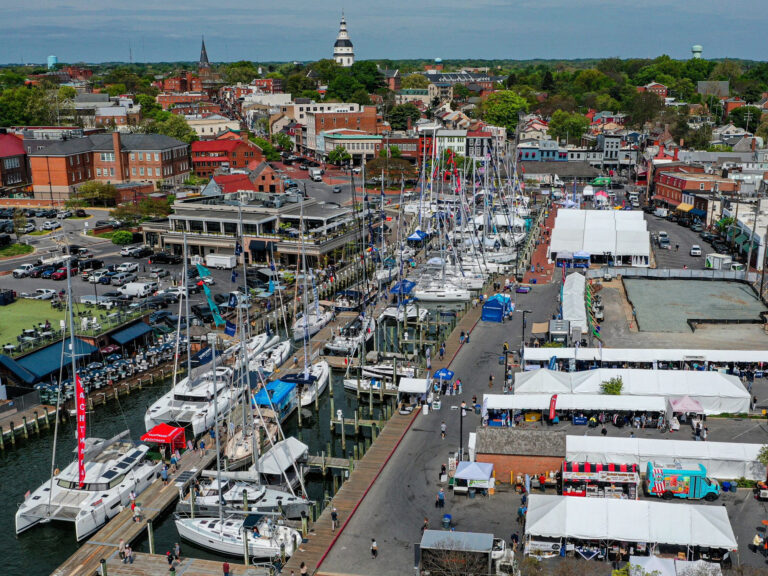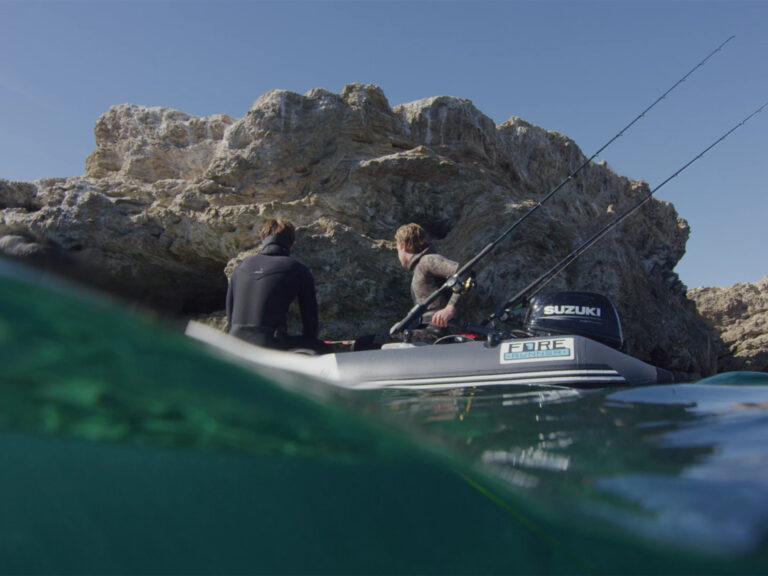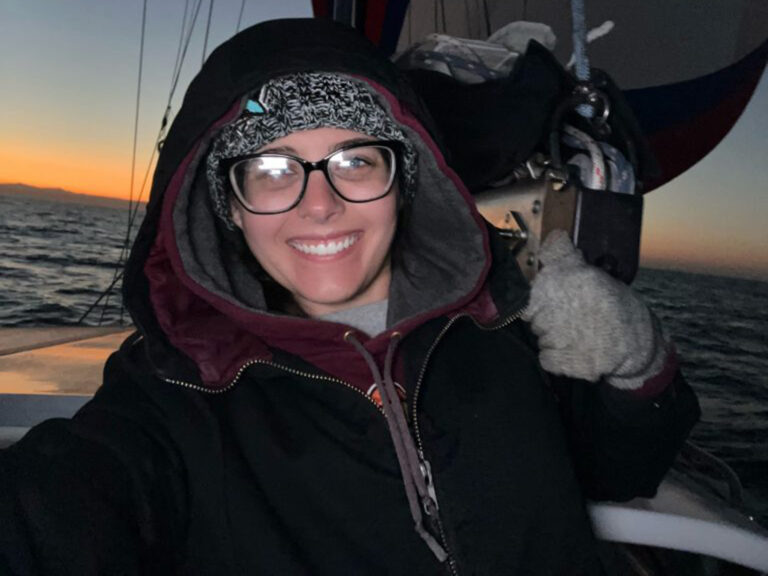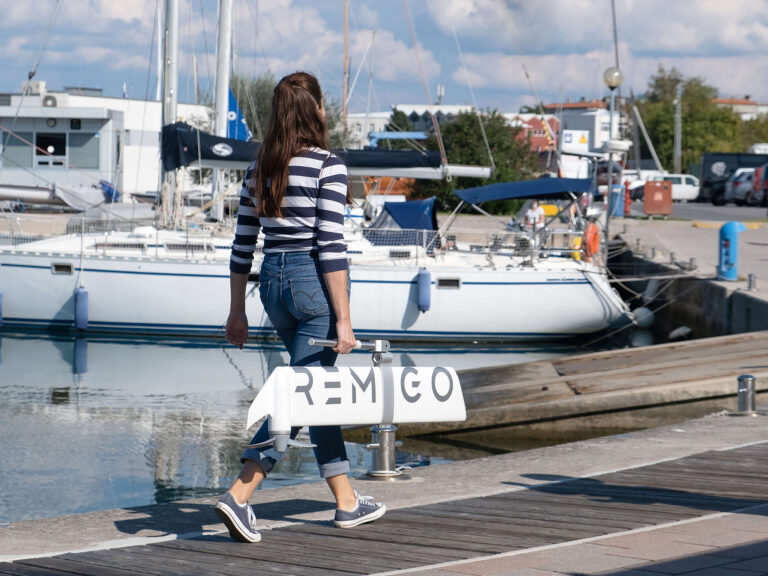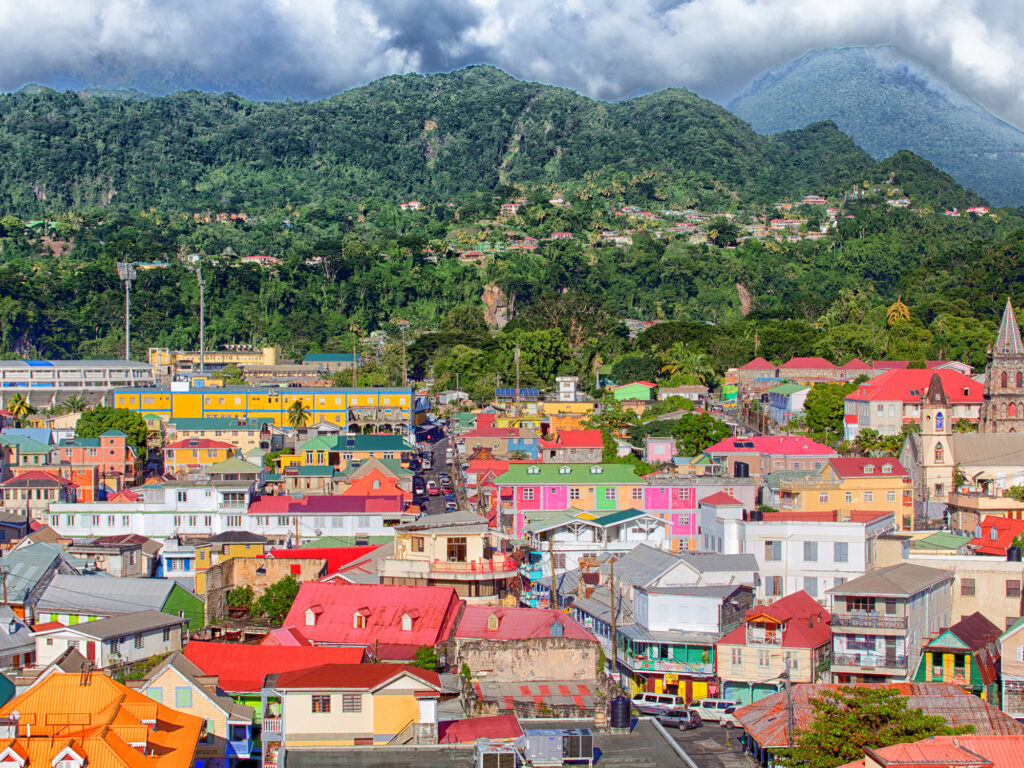
It was a perfect West Indian day: skies dotted with fair weather, popcorn clouds, winds east at 12 to 15 knots on the beam with a slight swell from the east. Temperatures were in the upper 80s.
Richard Thompson and I, both Mainers, were sailing Strider, his 40-year-old, 44-foot classic cutter-rigged sloop. We were heading north up the chain of islands that make up the Eastern Caribbean. It was April, and we were on our way to the Antigua Classic Yacht Regatta. Richard was sure he could get a spot crewing on one of the larger yachts racing there. I had an assignment to cover the annual gathering.
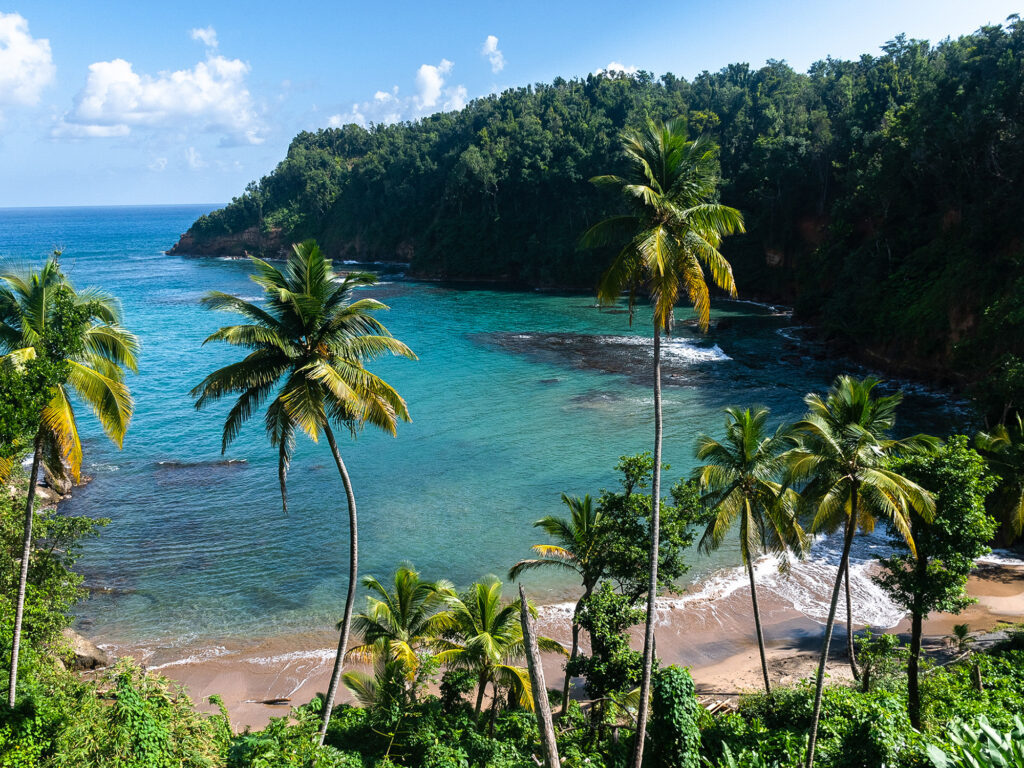
It took us half the day to sail the 25 miles across the open sea from Saint-Pierre on Martinique north to Dominica. Then, it was another 25 miles of motorsailing up the lee of the tall, green island to Prince Rupert Bay at the northern tip.
We slipped into Portsmouth Harbour in the late afternoon and picked up one of the Portsmouth Association of Yacht Services moorings. I called the PAYS office on our VHF radio, and one of the boys came out in his progue to collect the $10 fee. He also offered to handle the paperwork for clearing in—for an additional fee—but we were not planning on going ashore.
There was a time when yachts would bypass this harbor because the local boat boys were too aggressive. That’s why the old men formed PAYS, to clean up the harbor’s reputation. Hank Schmitt from SailOPO, the offshore crewing network, raised $20,000 from his members to help the PAYS men install moorings. They have 40 moorings there now, a pavilion ashore with a dinghy dock, and an office with a receptionist. On Saturdays, they host a damn good West Indian barbecue on the beach for all the cruisers.
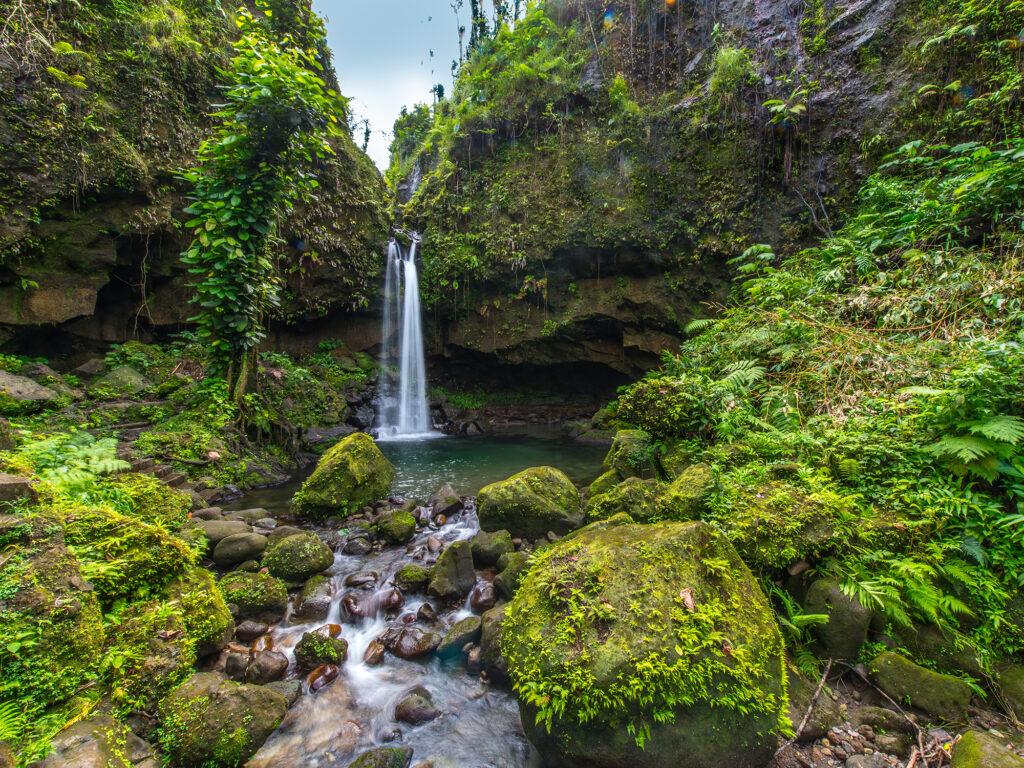
We could have anchored and saved the 10 bucks, but the PAYS guys are a nice bunch and deserve our support.
Richard and I observed sunset in our traditional fashion: he with a rum punch, and I with a rum and tonic. As we got dinner on the stove, I thought about the half dozen times I’ve been ashore on Dominica. Each time was an adventure, some better forgotten.
Last time, in 2019, I was on a delivery from Antigua to Sainte-Anne on Martinique with my wife, Julie, and our two kids, who were teenagers at the time. We rented a car and spent a day driving around the island, slowly—you can’t do this quickly, not on this island’s roads. We drove up through the rainforest, visited waterfalls, had lunch in the Carib village on the east side of the island, and got a flat tire that a friendly local insisted on helping me change.
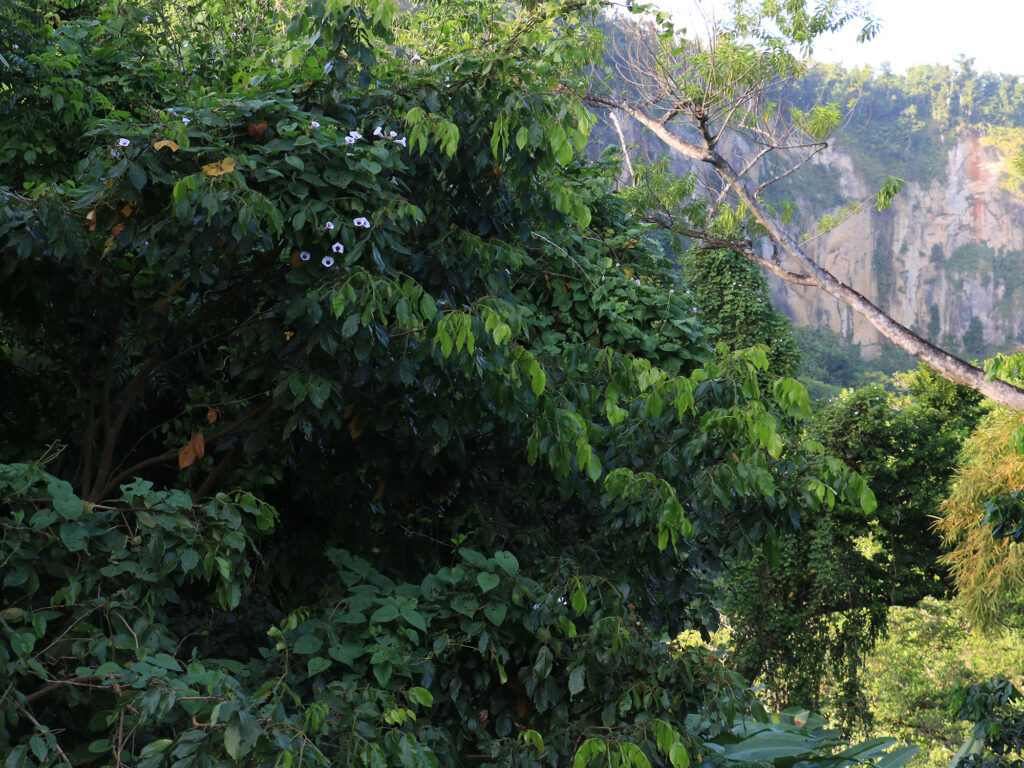
Then, our daughter Ren got us lost. She was navigating with a map app on her phone, insisting she’d found a faster way back to Portsmouth, up through the mountains. The potholed road turned to dirt, which turned into a goat path.
In the middle of the jungle, there appeared a new, arched, concrete bridge over a deep gorge. We stopped to inspect.
Yes, we could proceed, but with no signs of humanity and no spare tire, my nervous quotient was hovering in the danger zone.
I needed a double shot of rum when we got back to the boat.
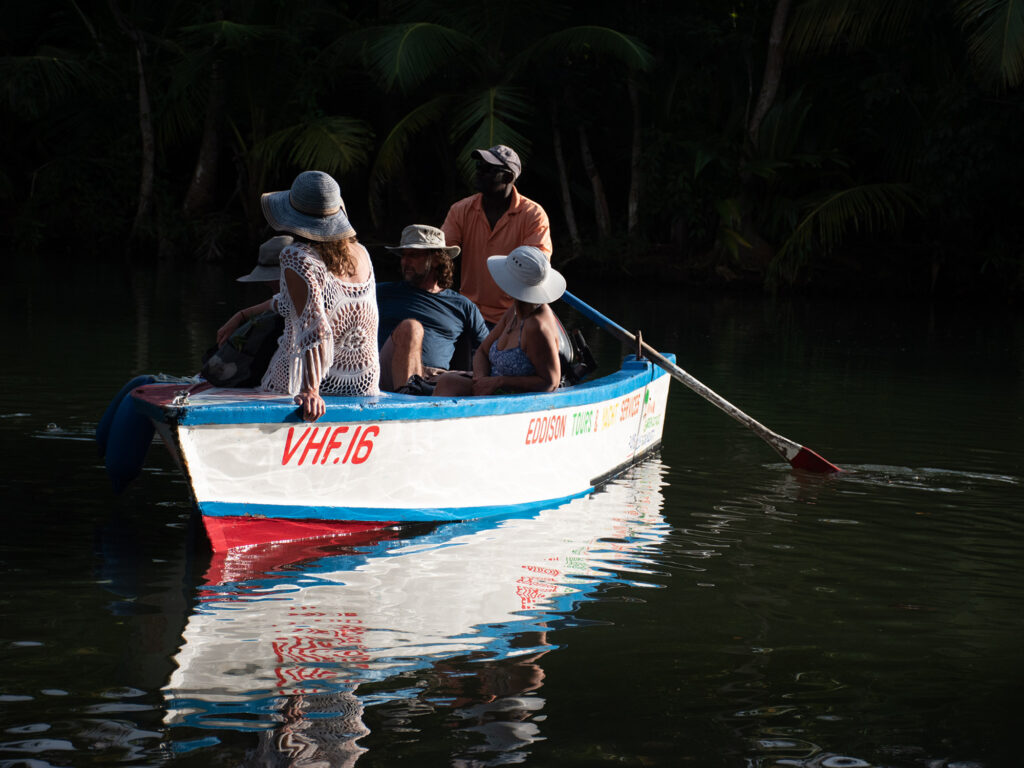
We had a much more pleasant experience with Albert, one of the older PAYS boat boys, who agreed to guide us up the Indian River in his progue, a traditional 25-foot outboard-driven skiff. The two-hour excursion was well worth the money we spent, like stepping back into Jurassic Park. The slow-moving river meanders inland through dense jungle. On the bank were a ramshackle dock and hut, left by a Pirates of the Caribbean film crew. The only sounds were the whisk of Albert’s oars, the call of birds, and Albert’s soft voice as he told us stories of growing up on this island. He pointed out lizards ashore, specific trees and birds. He knew his stuff.
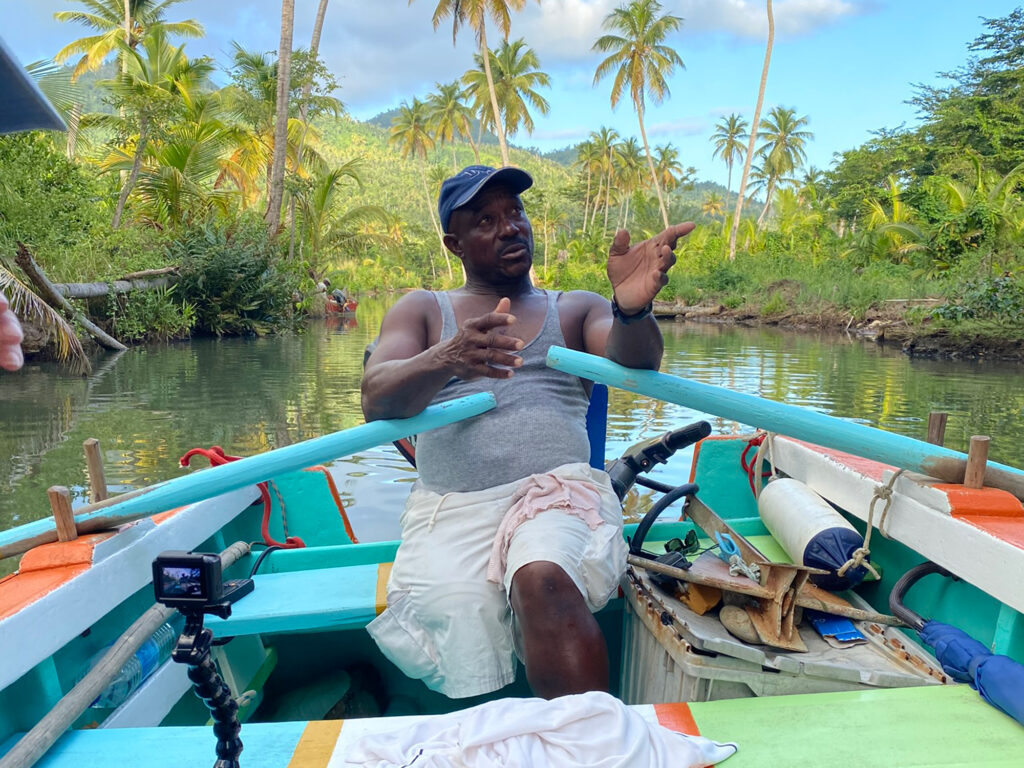
It was getting dark when we came to a dock along the riverbank. Albert pulled alongside, and with one hand, tied off. Ashore was a thatched hut with a bar, set within a flowering garden. We sipped rum punch and wandered the trails with our cameras, then returned to the boat with a beverage for Albert. Off we went, back down the river, lost in total silence—except for the rhythmic sound of Albert’s oars. His progue, and all the other boats that ply the river, have outboards but aren’t allowed to use them. It’s oars only.
Not much has changed on Dominica since I first visited in 1997. The wild interior presents a natural barrier to development, and the people don’t appear to be in any rush to construct lavish beachfront resorts, condo developments or timeshare villages.
The main street in Portsmouth could use an upgrade. I’ll look for that the next time I come back and linger for a few weeks, maybe a month.
This time, though, Richard and I had no time to waste. The next morning, we headed north to Antigua’s Jolly Harbour, which always feels good. The name has a positive sound to it.

